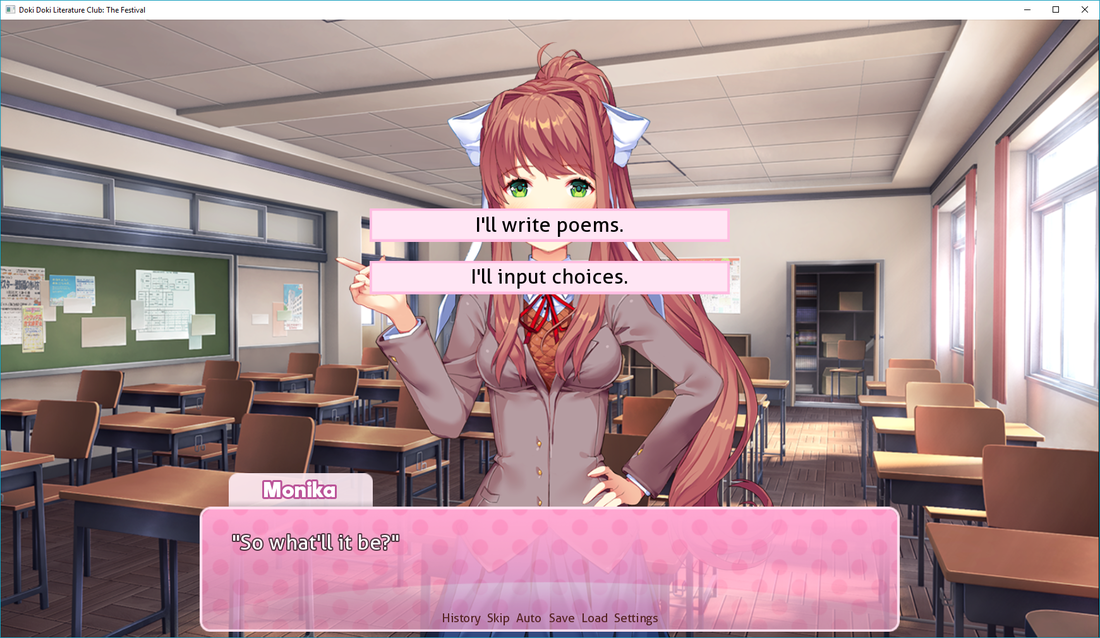Choice is without a doubt a big part of game genres across the board. Doki Doki Literature Club is no different, bringing the aspect of choice to a visual novel/dating simulator/psychological horror game. In DDLC, the aspect of choice is very distinct. We, as the players of the game, get to make choices for our characters in an attempt to control the narrative, but most of the time, our choices don’t change the game all that much. We don’t realize this the first time we play through the game, but over time, we do come to realize this. Ultimately, the game has one path, which leads to us having to delete Monika from the game.
So how is it that choice works in other games? Choice can be a great tool for story telling, no matter how little or how much impact it has on the rest of the game. I’m a big fan of sports video games, and for that reason I will use a couple of different game modes from sports games. The first two I find worth mentioning are the MyGM and MyCareer modes found in the NBA 2K franchise. Both of these modes include choices frequently that can change outcomes.
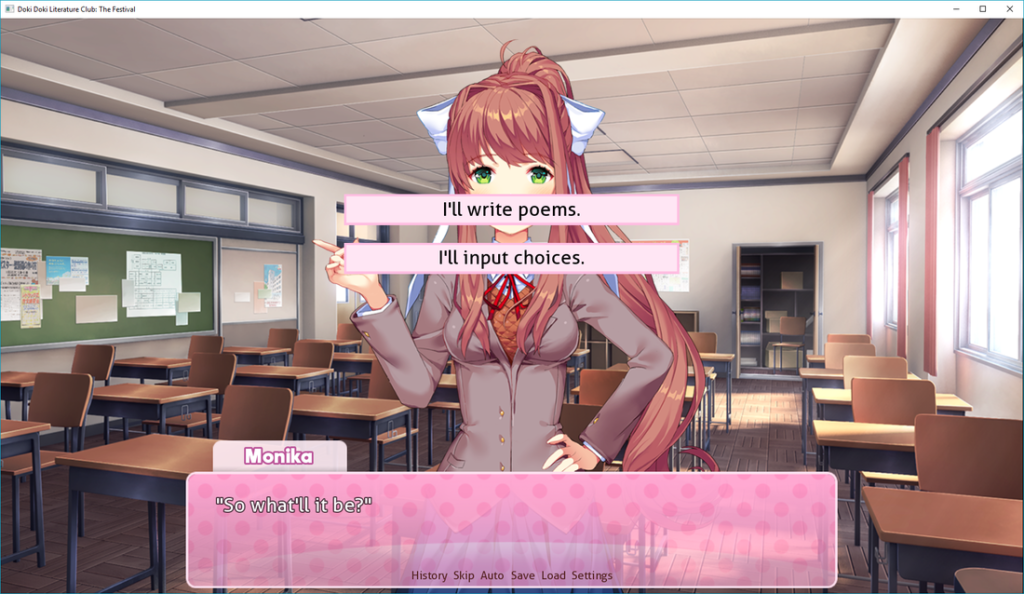
In MyGM mode, you act as the general manager of one NBA franchise. Part of this is players and agents approaching you about things such as playing time and contract negotiations. This is where the decision making comes in. While there are many variables at play, the biggest one is player morale. If you, as the general manager of the team, decide not to entertain a player’s contract proposal, his morale could decrease, as could his future performance. However, entertaining this contract proposal could increase his morale and increase his performance, but at the expense of salary cap space.
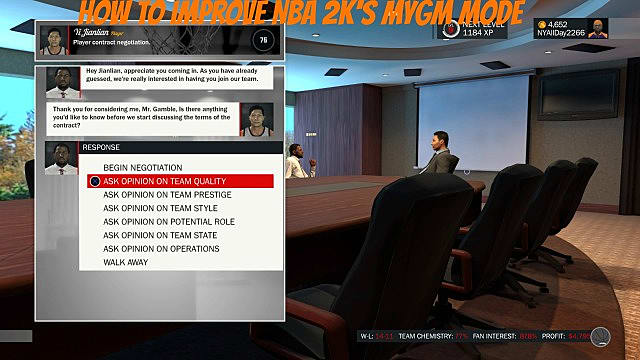
A similar set of decisions and consequences occurs in the MyCareer mode, but with a twist. In this mode, you create a player and go through his entire career, controlling his every move. After each game, your player takes part in a postgame press conference, where he must answer an interview question. When the question is asked, the game will give you a choice of anywhere from 2-4 responses. Each response can and does affect fan popularity, teammate chemistry, and your relationship with the coach. Because there isn’t a true ending to this game, there is plenty of time to reverse the consequences of your prior decisions.
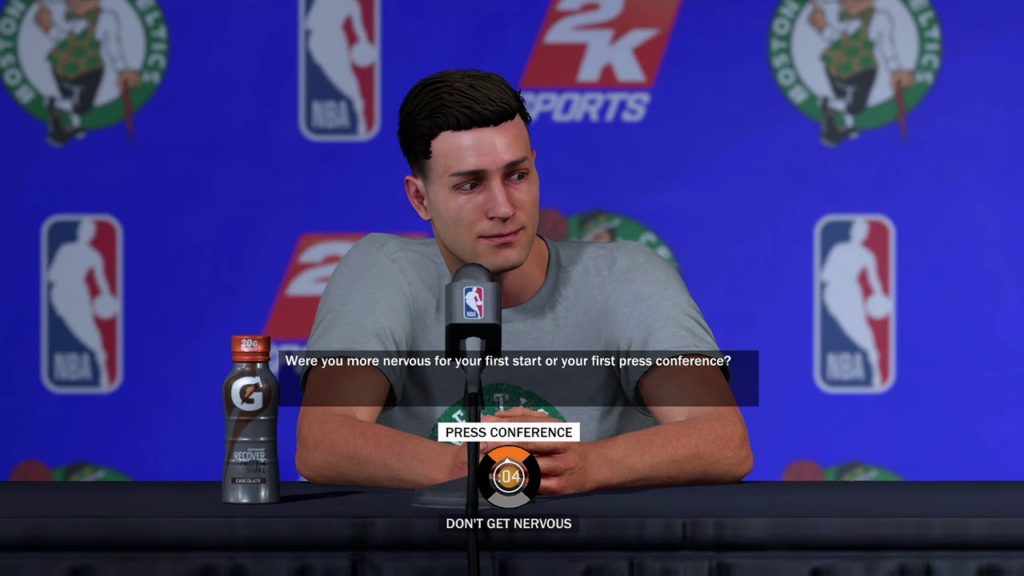
There is a clear contrast here with DDLC and sports titles. DDLC is a psychological horror title, and is most often described as such. Meanwhile, NBA 2K is nothing more than a sports game trying to raise sales by adding an interactive element to the game. Where does the distinction lie? If we rewind to just a couple of weeks ago when we took a look at horror games, we would see a recurring theme of fear. Specifically, the fear of the unknown came up frequently. In fact, my last blog post was about how Soma and Until Dawn utilize the fear of the unknown to create a horror game. This is similar to how Doki Doki uses choice to exploit our fear of the unknown. As we play this game for the first time, we don’t know the implications of our choices. In fact, when we play for the first time, it seems like no matter which choice we make, it is the wrong one due to the death of multiple characters along the way. What we don’t know is that these characters would have died regardless.
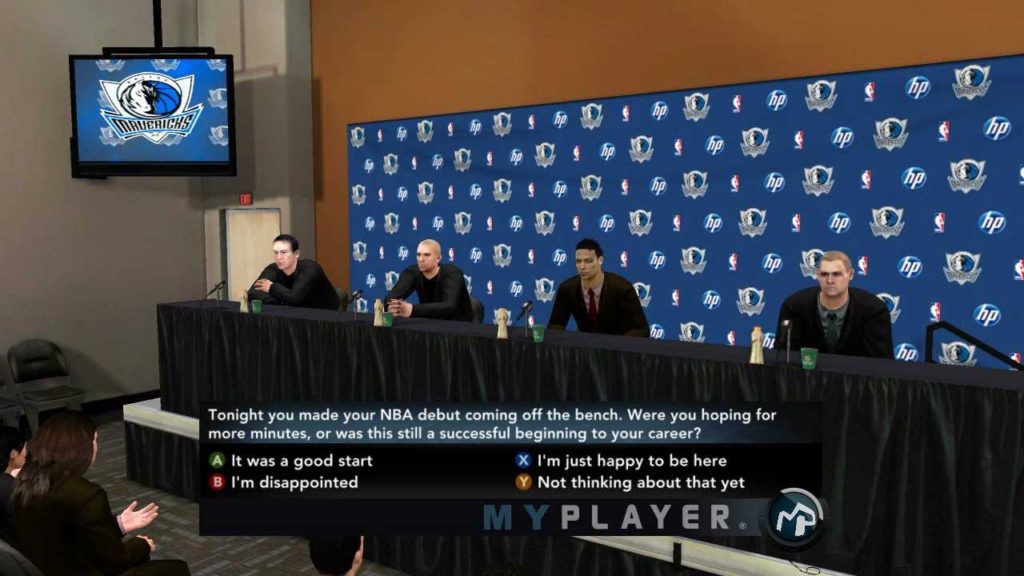
Contrast this once more to the sports games. Choice in these games follow a fairly simple trend. Playing this game for five minutes will give you all the information you need. If you answer favorably to the reporters, you may gain fans but at the expense of your teammate chemistry. The problem with this is that, since there is no defined end, it becomes very easy to identify which option does what. Option 1 always boosts your teammate chemistry, option 2 always boosts your popularity and your fans, etc. Because of this, we don’t feel a fear of the unknown because nothing is really unknown to us as players. It is very clear that is the intention of the game. After all, people play NBA 2K to break ankles on the basketball court, not be slowly broken down psychologically.
